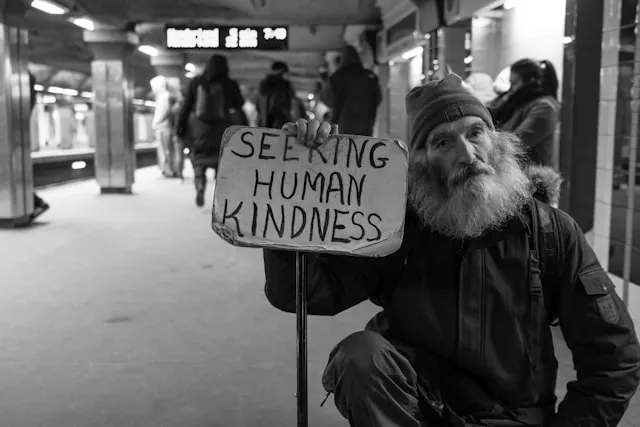VERSIÓN EN ESPAÑOL
Acabamos de terminar la Semana Santa, y en breves palabras les comparto que estuvo cargada de muchas experiencias maravillosas, motivadas por las diversas actividades de estos días. La vivencia de los sufrimientos de Cristo mediante las celebración que hicimos me tocó de manera particular, pues, ésta es la prueba de humanidad más clara que tenemos, ya que son las cosas que cuestan las que sacan lo mejor de nosotros, manifiestan la pureza y simplicidad de nuestro ser y nos hace capaces de aportar significativamente a la sociedad, puesto que poco sabe y entiende de la vida el que no ha sufrido, de una u otra manera, en tal o cual aspecto.
No es masoquismo
Hablar del sufrimiento puede parecer para algunos desacertado, hasta incluso tachar de masoquista a aquel o aquellos que pregonan sobre él. Ante este hecho quiero puntualizar que no es el sufrimiento en si mismo lo que nos ayuda sino nuestra actitud ante él, sólo así nos será de provecho, como decía la Madre María de San José: "El mérito no está en sufrir sino en saber sufrir." De tal manera que hasta que no le demos un sentido a aquello que nos hace sufrir, esa experiencia tampoco nos hará crecer, incluso puede ser más perniciosa.
Por ejemplo, a mí no me gusta enfermarme, que algún virus se aloje en mi organismo. Ahora, cuando considero que a veces las enfermedades son buenas porque fortalecen el organismo, porque me hacen más inmune a ciertos ataques patógenos, ya no me quejo tanto. Lo mismo pasa con el ejercicio físico, en muchas ocasiones no quiero hacerlo pero cuando pienso en sus beneficios me animo. Asi pudiese poner otros muchos casos, lo importante es subrayar que cuando descubrimos en el sufrimiento algo humano, en este sentido inevitable, y sacamos lo mejor de él, podemos madurar más en la vida.
Fórmula del crecimiento
La manera que los músculos crecen internamente es impresionante, pues, es necesario que se rompan los tejidos para que aparezcan otros nuevos. Prácticamente todo en la naturaleza sigue el mismo proceso, por ejemplo, la oruga se transforma en mariposa, del huevo sale un ave, de la semilla un árbol y de la unión del hombre y la mujer un nuevo ser humano. De allí que si naturalmente ya tenemos inscrito un proceso de superación continua, lo que tenemos que hacer es adaptarnos al mismo, hacerlo consciente, y aplicarlo a nuestra cotidianidad, dentro de esta perspectiva hemos de colocar las cosas dolorosas de la vida, pues, al superarlas salimos más fortalecidos.
De hecho, pudiese afirmar que aquí está la fórmula del crecimiento humano, esforzarse siempre pero más en los momentos difíciles, no sólo porque las circunstancias lo ameritan sino porque es precisamente en ellos donde se está fraguando ese ser humano que queremos ser. Así como el oro se vuelve más brillante cuando se pasa por el fuego, así también mostramos la grandeza que habita en nosotros cuando pasamos por cualquier tipo de sufrimiento (físico, moral, espiritual, psicológico, etc ) Por ejemplo, qué tan solidario podemos ser con los demás aún en medio de nuestras propias circunstancias.
Inspiración para los demás
La grandeza del ser humano no está en el sufrimiento, aunque he hablado ya varias veces del mismo, sino en su superación , no huyendo sino integrando esta realidad a nuestro crecimiento personal, así como los colores tienen sus matices y las notas musicales sus escalas, la vida humana pasa por él y aprende y se fortalece para seguir su camino.
Nuestra vida es un libro que estamos escribiendo día a día, en él vamos formando capítulos y hacemos grandes volumenes. Así como es difícil comprender un libro físico si arrancamos una página o incluso un capítulo entero así también no podemos comprender la grandeza de una vida sin atender los sufrimientos (pequeños o grandes) por los que ha pasado, ya que le han formado profundamente para ser una inspiración para los demás. Por ejemplo, los años de Nelson Mandela en la cárcel o, para terminar como empezamos, los sufrimientos de Jesucristo en la cruz, todo lo cual conforma una prueba de humanidad siempre impactante.

ENGLISH VERSION
We have just finished Holy Week, and in a few words I want to share with you that it was full of many wonderful experiences, motivated by the various activities of these days. The experience of Christ's suffering through the celebrations we held touched me in a particular way, because it is the clearest proof of humanity that we have. It is the things that cost us the most that bring out the best in us, manifest the purity and simplicity of our being, and make us capable of contributing significantly to society. After all, he who has not suffered in some way or another, in this or that aspect, knows and understands little of life.
Suffering is not masochism
Talking about suffering may seem inappropriate to some, even to the point of labeling those who talk about it as masochistic. To this point I want to point out that it is not suffering itself that helps us but our attitude towards it. Only then will it be of benefit to us, as Mother Mary of Saint Joseph said: "The merit is not in suffering but in knowing how to suffer." So until we give meaning to what makes us suffer, that experience will not make us grow either, and it can even be more harmful.
For example, I don't like to get sick, to have a virus invade my body. However, when I consider that sometimes diseases are good because they strengthen the body, because they make me more immune to certain pathogenic attacks, I don't complain as much. The same thing happens with physical exercise, many times I don't want to do it but when I think about its benefits I get motivated. I could give many other examples, but the important thing is to emphasize that when we discover something human in suffering, in this sense inevitable, and make the best of it, we can mature more in life.
The formula for growth
The way muscles grow internally is impressive, because it is necessary for the tissues to break down in order for new ones to appear. Practically everything in nature follows the same process, for example, the caterpillar transforms into a butterfly, the bird comes out of the egg, the tree from the seed and the human being from the union of man and woman. Therefore, if we naturally already have a process of continuous improvement inscribed in us, what we have to do is adapt to it, make it conscious, and apply it to our daily lives. Within this perspective we must place the painful things of life, because, by overcoming them, we come out stronger.
In fact, I could say that this is the formula for human growth: to always strive, but more so in difficult times, not only because the circumstances warrant it, but because it is precisely in these times that the human being we want to be is being forged. Just as gold becomes brighter when it passes through fire, so too do we show the greatness that dwells within us when we go through any kind of suffering (physical, moral, spiritual, psychological, etc.). For example, how much solidarity can we be with others even in the midst of our own circumstances?
Inspiration for others
The greatness of the human being is not in suffering, although I have already spoken about it several times, but in its overcoming, not by fleeing but by integrating this reality into our personal growth. Just as colors have their shades and musical notes their scales, human life goes through it and learns and strengthens itself to continue its journey.
Our life is a book that we are writing day by day, in it we are forming chapters and making great volumes. Just as it is difficult to understand a physical book if we tear out a page or even a whole chapter, so too we cannot understand the greatness of a life without paying attention to the sufferings (small or large) that it has gone through, since they have deeply formed it to be an inspiration for others. For example, Nelson Mandela's years in prison or, to end as we began, the sufferings of Jesus Christ on the cross, all of which form a test of humanity that is always impacting.







